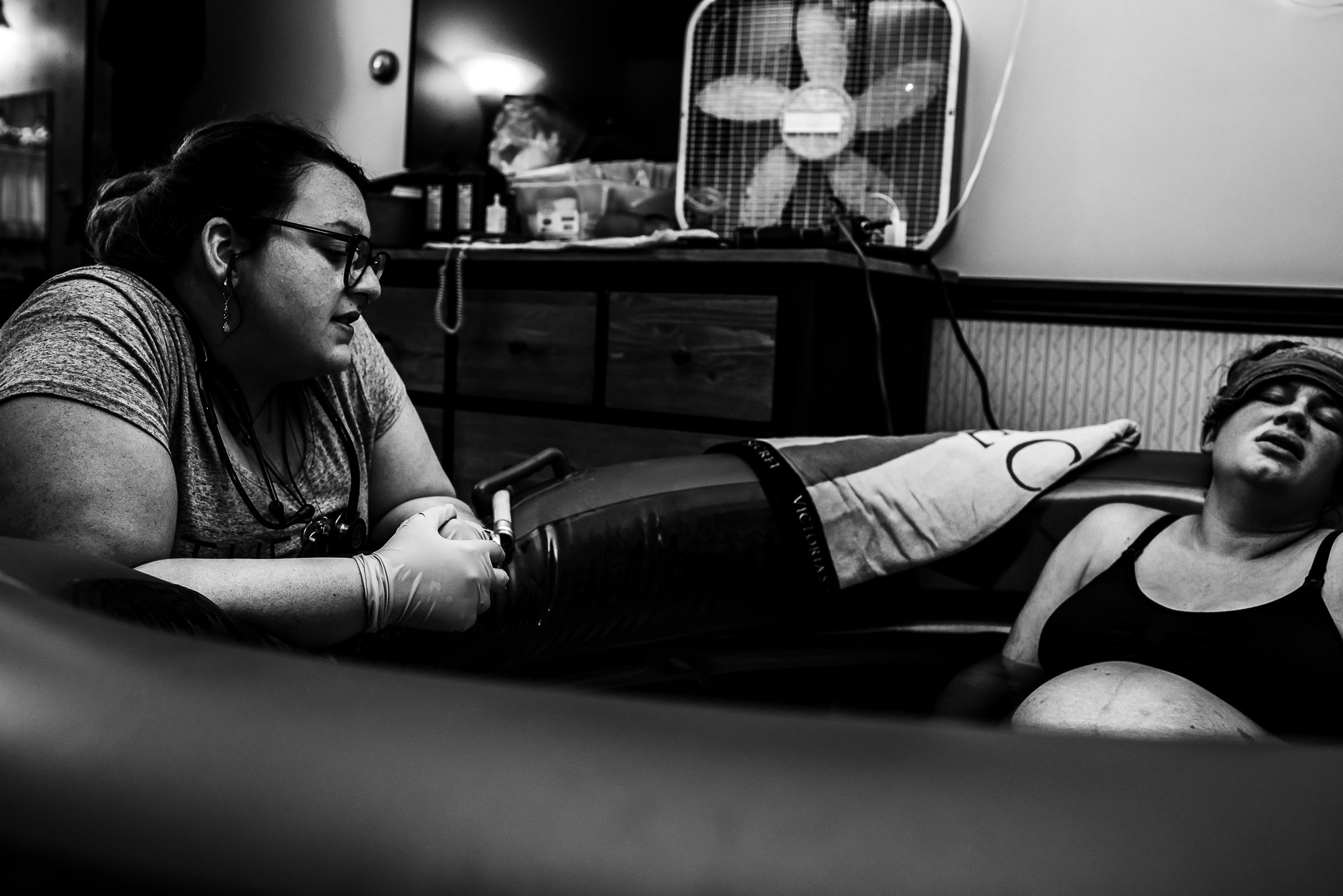What is a doula?
You may have heard the title “doula” floating around in various conversations or online posts, and have a vague idea that its something related to birth, but what really IS a doula anyway?
What is a doula?
A doula is a person that provides educational, physical and emotional support to birthing people during labor and delivery. They may offer prenatal and postnatal appointments as well as being present during labor and delivery, and are an excellent addition to any birth team.
What do doulas DO?
Doulas help you prepare mentally for your upcoming birth, providing the gift of evidence based facts to assist you in making the sometimes tough decisions that surround birth, and help you to advocate for yourself throughout your pregnancy and birth. They are professionally trained to provide continuous care to the birthing person, and provide information, as well as physical and emotional support to BOTH the birthing person, and their partner. The continuous presence and support of a doula, and not just a medical staff person at the facility, and not someone who is simply a part of their social network, during labor and delivery has been shown to decrease the risk of a cesarean section by 39 percent [Evidence Based Birth, Doula]. The presence of a doula (and in some cases a midwife, or partner as support person to a slightly lesser degree) has also been shown to reduce the use of pain medications (10% decrease), reduce labors by an average of 41 minutes, give the birthing person an increased chance of spontaneous vaginal birth (15% with a doula), and significantly decrease the birthing person’s dissatisfaction with the birth experience (31% decrease). [Evidence Based Birth, Doula]. There is very little that can potentially be seen as a negative to having a doula at a birth, whether it be in a hospital setting, a birthing center, or at home.
Doulas generally will be with you through labor and delivery, and provide physical support with massage techniques, counter pressure, hip squeezes, and more subtle support like making sure you stay hydrated, have a cool cloth for your forehead if desired, and will be there for you emotionally as a quiet, stable presence during your birth for you, AND your partner. Doulas will help you with position changes during labor, get your blanket when you’re cold, make sure your other support people are comfortable and fed, and generally are all around caretakers and protectors of your birth space. They are there to cheer you on, validate your feelings, and help to carry you through the hard parts to the ultimate first date: meeting your babe earth side.
But WHY does having a doula help reduce birth risks and interventions?
There are many suspected reasons that doulas are so effective as support people during labor and delivery. One reason could be the “harsh environment theory,” itself. Traditionally pregnant mammals seek out a quiet, dark, calm, safe place to give birth. Hospitals tend to have high intervention rates, bright lights, strangers, lack of privacy, and pain (needles, catheters, etc). [Evidence Based Birth, Doula] That combination would make a normally calm, cool, and collected person, anxious and stressed - which is something you do NOT want to be while trying to labor and deliver your baby! Another reason that doulas are effective support people is that doulas are actually a form of pain relief themselves, as evidenced by Hofmeyr in a study from 1991. [Hofmeyr, 1991].
An additional reason that doulas are beneficial in the birth space, is that the birthing person’s connection with their doula actually increases their oxytocin release, which promotes contractions during labor. According to Evidence Based Birth, researcher Kristin Uvnas Moberg confirms this, writing that the doula actually enhances the oxytocin release, decreasing stress, fear and anxiety, and increasing contraction strength and effectiveness. “In addition, the calming effect of the doula’s presence increased the mother’s own natural pain coping hormones, making labor feel less painful,” [Uvnas Moberg, 2014 as seen in Evidence Based Birth, Doula] Birthing persons that had a doula at their birth also experience higher success rates of breastfeeding, which is the prefered method of feeding a newborn [Doula]. A recent study done in Iran (a country often looked down upon for its human rights violations) has led to their recommendation that all hospitals and maternity centers provide mothers the services of a doula, since their research determined doulas have a clinically meaningful impact on anxiety and pain levels in first time mothers. They also stated that this access for a safe and calm delivery is considered a human right [Ravangard et al. 2017 as read in, Doula].
Education
There are tons of doula programs both in person and online where doulas can take classes and become “certified” but in reality, at this point in time there is no official registration for doulas in the state. There ARE programs that are more well known and respected however, and when you’re looking for a doula, I would absolutely ask about their educational background - someone who is dedicated to their craft will make sure they take an initial course and continue their education with courses and credits throughout the year to ensure they are up to date on new evidence and methods to best assist you during your labor and birth.
A doula should also “feel right,” for you and your partner - so an in person meeting (or at the very least, on Zoom or a phone call!) is essential for getting a feel for their vibe and see if they are a good fit for your family. A good doula is indispensable during a birth, and I would recommend every birthing person have one if they are able to!
What a doula isn’t
A doula is NOT a medical provider. They do not take vitals, they do not listen to babe’s heartbeat, they do not do cervical checks, they do not catch babies, cut the umbilical cord, or any number of other medical procedures. Midwives ARE medical providers, doctors and nurses are medical provides - doulas are not, and if you find yourself speaking with one who claims otherwise, run the other direction!
I think I want to hire a doula! Now what?
Where to search for a doula
Check your local Facebook mom’s groups for recommendations!
Ask your family and friends
Search on www.doulamatch.com or www.dona.org
Ask your medical provider for a recommendation
Set up an interviews
Schedule interviews with your doula potentials, and try to have your partner involved if at all possible!
Have a list of questions ready to ask during the interview (I’ll post some examples further down in this post!)
Try to meet in a public place, or conduct a zoom meeting - remember to follow all local Covid safety regulations
It’s okay if you don’t LOVE every doula you meet. Birth (just like the event that caused the pregnancy) is a very intimate and private event in many cases. You won’t mesh with every doula you meet. That’s okay! When you find one that just FEELS right, you’ll know!
Sign the contract
It’s okay to take some time to think about it after conducting your interviews, but make sure you let all the potential doulas know when you have made your decision, so they aren’t waiting to hear back from you.
I would highly recommend NOT entering into service with a doula (or any other member of a birth team) without signing a contract!
What questions should I ask?
Where did you receive your training? Did you complete certification?
How long have you been a doula? Tell me a little bit about your experiences supporting families.
What are some techniques that you will use to help me through my labor?
How do you support my partner?
What is your role in regards to interacting with my medical providers?
What is included in your doula support packages?
When do you go on call for my birth?
Do you have a backup available if you’re unable to come to the birth?
How much is your fee/what does it include?
If we decide to hire you, what’s the next step?
If you are in my area of Central Pennsylvania and are searching for a doula, please contact me! I’m a certified doula, and would love to chat about how I can support you during your birth.






